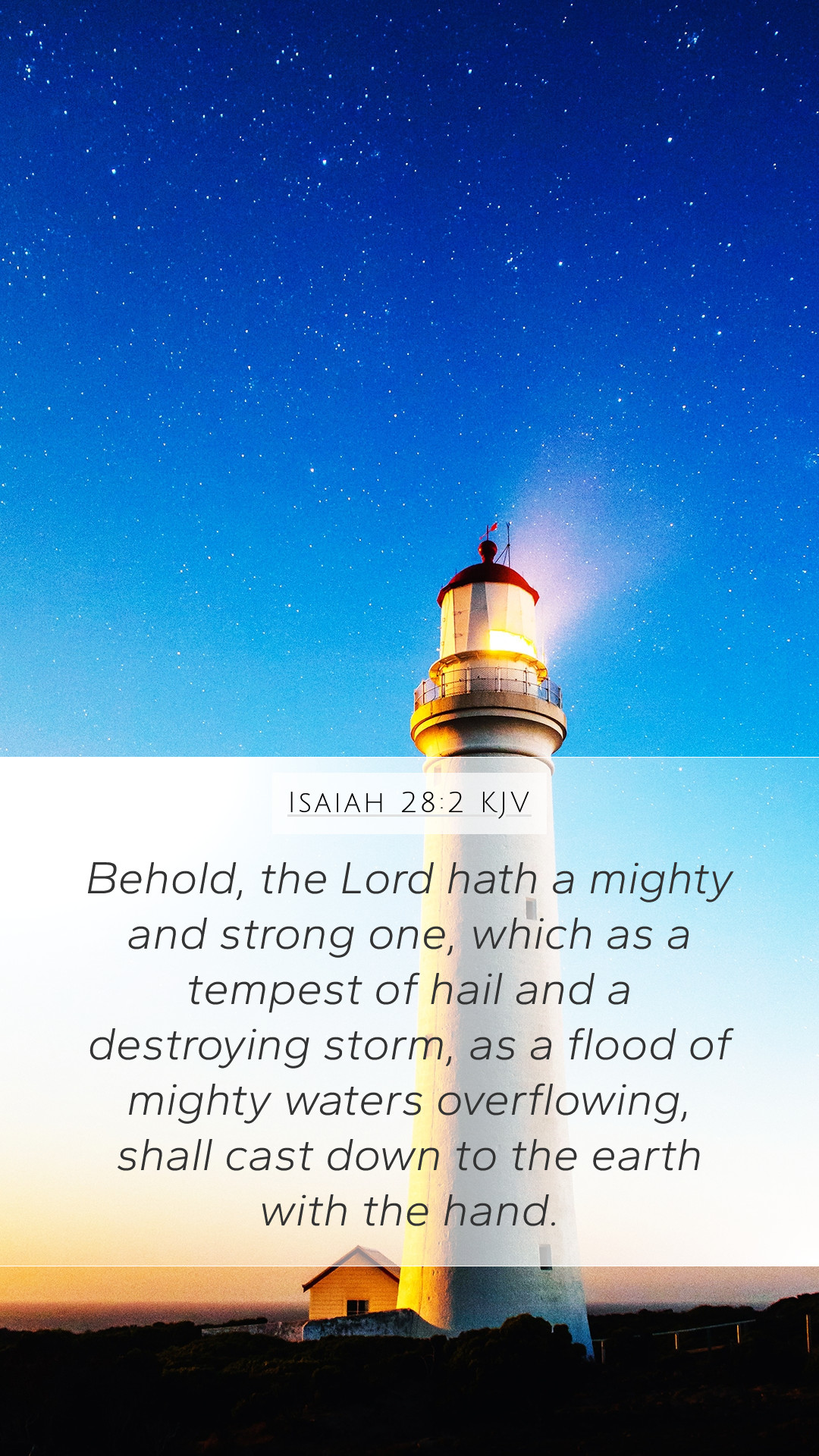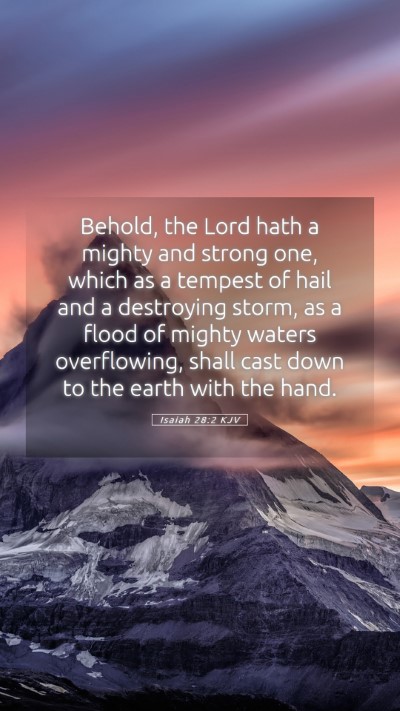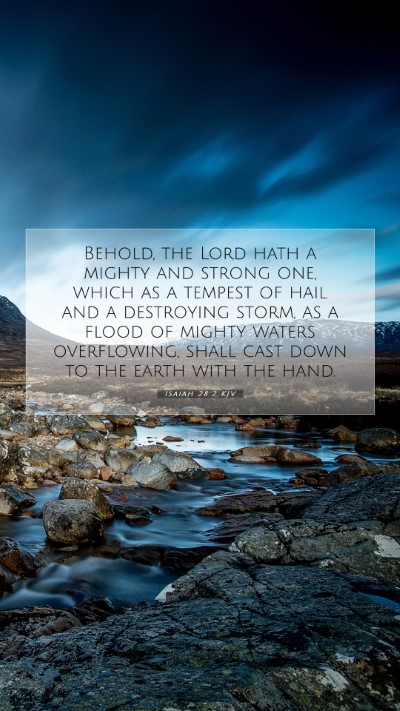Understanding Isaiah 28:2
The verse Isaiah 28:2 states: "Behold, the Lord hath a mighty and strong one, which as a tempest of hail and a destroying storm, as a flood of mighty waters overflowing, shall cast down to the earth with the hand." This passage is filled with rich imagery and profound meanings, which have been explored in various public domain commentaries. Below, we provide a comprehensive analysis combining insights from Matthew Henry, Albert Barnes, and Adam Clarke, aiming to illuminate the depth of this scripture.
Overall Meaning
Isaiah 28:2 serves as a reminder of God's power and authority. The "mighty and strong one" signifies an instrument of judgment that God raises against the unrepentant and obstinate people. This figure acts like a storm, symbolizing the suddenness and force of God’s impending judgment. The verse paints a picture of God’s sovereignty and the seriousness of His warnings, emphasizing the need for reverence and readiness among His people.
Key Themes and Insights
-
Divine Judgment:
According to Matthew Henry, the "mighty and strong one" represents God’s judgment coming in the form of His judgments that are likened to a storm—unexpected and destructive. This signifies the inevitability of God's retribution against sin.
-
Symbolism of Natural Forces:
Albert Barnes elaborates on the use of natural disasters as metaphors for divine action. The tempests of hail and overflowing floods symbolize the overwhelming and uncontrollable nature of God's judgment, illustrating that when God acts, no one can escape the consequences.
-
The Urgency of Repentance:
Adam Clarke emphasizes that this passage encourages a sense of urgency for repentance. God's mercy is present, but His patience has limits, and this call to awareness is vital for those who stray into complacency.
Contextual Analysis
To fully grasp Isaiah 28:2, it's important to consider its context within the Book of Isaiah and the historical setting. The nation of Israel faced numerous challenges due to their disobedience and reliance on foreign alliances instead of trusting in God. This chapter serves as a warning of impending doom unless they return to humility and faith in the Lord.
Historical Context
The backdrop of this verse is significant; during the time of Isaiah, Israel was experiencing political instability and moral decline. The warning, therefore, was directed at the leaders who sought refuge in earthly powers rather than divine assistance.
Biblical Exegesis
Exegesis of this text requires digging into its linguistic, historical, and theological nuances. The original Hebrew words for "mighty and strong one" denote strength but also indicate a capacity for judgment that is both severe and swift. This reflects God's character as just and righteous, seeking to correct His people.
Interpretation Through the Lens of Prophecy
Isaiah 28:2 can also be interpreted through prophetic lenses, where the strong figure representing judgment can symbolize future events leading to both destruction and restoration, a common theme in prophetic literature.
Application for Today
The implications of Isaiah 28:2 resonate in contemporary discussions about accountability, justice, and the nature of divine mercy. For modern readers, this passage prompts self-examination and reflection on one's relationship with God. It challenges individuals to consider the consequences of turning away from divine guidance and the necessity of seeking His favor amidst life's storms.
Practical Takeaways
- Recognize the seriousness of sin and the need for genuine repentance.
- Understand that neglecting one's spiritual duties can lead to divine discipline.
- Trust in God's sovereignty during difficult times, knowing that He holds ultimate authority over all circumstances.
Cross References
- Isaiah 30:27-28: Discusses the coming judgment likened to storm and fire.
- Jeremiah 23:19-20: Relates to the fierce wrath of God against false prophets.
- Matthew 7:24-27: Jesus warns about the consequences of not heeding His words, reflecting the storm concept.
Further Study and Reflection
For those interested in deeper Bible study insights, group discussions about this passage can yield rich revelations. Utilize Bible study tools and resources to explore connected themes of judgment, grace, and the character of God in both Old and New Testament scripture.
In Conclusion
Isaiah 28:2 serves as a powerful reminder of God's control and the urgency of repentance. By engaging with this scripture through thorough analysis and contemplation, believers can find profound meaning and application in their lives today. Utilize this commentary as a stepping stone for more extensive personal study or group discussions in Bible study groups.


